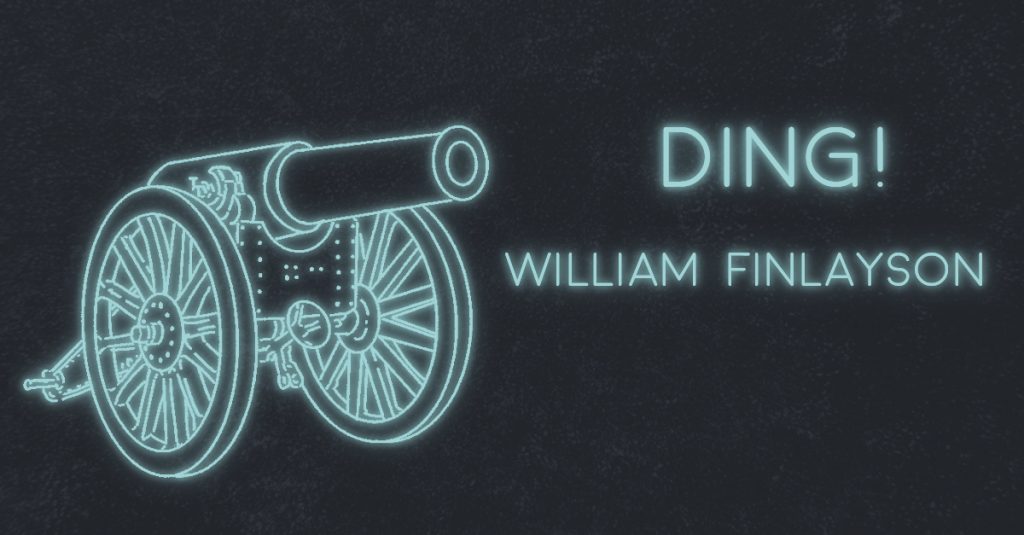The kid must have defected. He’s still lying there in the dirt—red-faced and full-uniformed, one arm in the pig’s water trough, that red insignia hot on his sleeve—and what should they do with him? They point fishing spears and pitchforks and kitchen knives at him. Tie him up in the barn that’s what’s to do, Nema says. Kill him right here and now is what it is to do, says Jenko. It’s that we should turn him in to a judge, Harlem says. Isn’t that the wartime law? So they tell Harlem that he should take the kid to the city, but It’s a long way, Harlem says and they laugh at him and agree that they should just kill the kid themselves.
So they take the kid north of the fields and give him a shovel and tell him to dig. And the kid cries as he digs and digs and they all kind of sit around and watch for a while. And when they realize it’s going to take most of the day they settle in, start a fire and cook sausages. And the sausages are so good they go back to town and Lima slaughters that crippled lamb because she’s been waiting for a reason and they come back with a big pot and steaks and potatoes and boil a boil-everything soup and invite everyone. Gorchak brings bread from his bakery and Jardo has fresh cheese. They even give some to the kid before they make him go back to the hole to keep digging and digging.
Then DING! and the crowd of them look up from over their soup bowls toward the knee-deep hole. DING! DING! They walk over and look down where the kid is digging and look at that. Keep digging, they say. Dig around it, and the kid does. And as the kid scoops dirt away from the metal they can see that it’s a long black cylinder, a fossil, Bera says. No, no, and at the top end of the cylinder a hole, a chimney, Marki says. It can’t be. And as the dirt comes away it gets more and more obvious to the kid the shape of it, the weight of it in the ground, he knows it, the memory of the sound of it, that it’s a cannon, the kid says.
A cannon! oh wow, oh no, what do—how did and where? and who should and how could it? But the kid just keeps digging because this is something, he thinks, and by sunset he gets down to the rotted wood base and then he has the whole long barrel out and a few rusty cannonballs and by the light of lanterns and with every eye peering over his shoulders he steps out of the hole and wipes his forehead. I’ve never seen does it still could it actually? and they look to the kid and the kid hops back down and fiddles with the vent where the fuse would go and smiles a little smile and nods his head sure.
And so they do what the kid says to do, which is to go and bring washcloths and buckets for cleaning the cannonballs. If anyone can find a long pole they could use to clean the bore. Bring a long sample of yarn, a finger of wax, matches, rags and oil, all the gunpowder you’ve got thank you. And as the equipment comes in the kid points out the positions: you stand here and work the thumbstall be careful. You worm the barrel you work the wet sponge, the dry sponge. You’re the Powder Monkey, the Rammer, the Primer, and they fight over who gets what job.
Listen, the kid says crouched down inside a ring of white eyes, the whole crowd of the town standing close around or far away with their hands over a child’s ears or squatting low to the ground or holding a bowl of second or third soup and spilling most of it on their fingers. This is the friction primer, and when I pull it, and everyone nods their heads like of course, sure, and they turn to look out into the dark forest where the metal ball will boom forward just like they imagine how they want it to and blast through a tree, or maybe two trees, and they think of the crater in the earth, the way they’ll step down into it, how deep and how wide. And Ready! the kid says who’s wrapping the pull-string so tight around his fist he could bleed.

